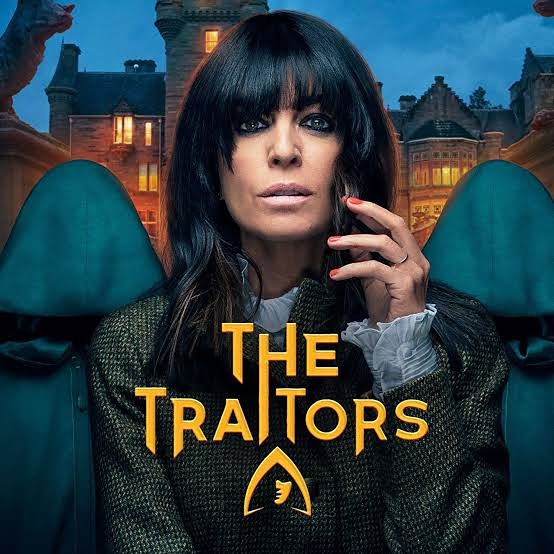Would Hypnosis Skills Help you to Win The Traitors TV show?

The Traitors TV Show Returns to BBC One for Series Three here at the start of 2025.
As the contestants look for new ways to win we ask the question:
Could you use Hypnosis to help you Win The Traitors?
Get them before they get you. 22 strangers, one castle, £120k - Claudia Winkleman hosts the ultimate reality game of trust and treachery. Let the mind games begin.

Using hypnosis to win The Traitors sounds like something straight out of a movie, doesn’t it? It’s fun to imagine you waving a pocket watch around and everyone suddenly going, “Oh yeah, you’re definitely not a traitor!” But in reality, hypnosis doesn’t quite work like that.
What hypnosis can do is help build trust. For example, skilled hypnotists often use subtle tricks, like mirroring someone’s body language or matching their tone of voice, to make people feel more comfortable. In the game, that could make you seem super trustworthy—like the kind of person no one would suspect.
Another way it could come in handy is reading people. Hypnotists are great at picking up on tiny cues—like a nervous twitch or a change in someone’s voice. If you could spot those little tells, you might be able to figure out who’s lying and who’s on your side.
But here’s the thing: hypnosis isn’t mind control. You can’t just Jedi-mind-trick someone into confessing or trusting you completely. Plus, the game is high-energy and chaotic, which isn’t exactly the best environment for subtle, hypnosis-like techniques.
Also… let’s talk ethics. Using hypnosis without people knowing? Even if it could work (which is a big if), you’d probably alienate everyone if they caught on. Imagine them realizing you’ve been pulling psychological tricks—it’d be game over for you.
So, while the idea of using hypnosis is fun to think about, you’d probably do better sticking to good old fashioned social manipulation: build alliances, stay calm under pressure, and make sure you’re always one step ahead of the traitors (or the faithful, if you’re the traitor!).
Let's take a more studied look at what you could do and how that may work, if you decided that you were going to try!
Hypnosis, in theory, could be useful in The Traitors under specific conditions, but its practical application would be quite limited and ethically dubious. Here's a breakdown of why and how it might or might not work:
How Hypnosis techniques and ideas Could Be Useful
Building Trust:
Hypnosis is often used to create a sense of rapport or connection. If you could establish strong trust through subtle hypnotic techniques (like pacing and leading conversations), you might influence others to see you as less suspicious. This is something that you may have heard of called NLP. It is often taught to salespeople, so in fact many people can spot it and find it comes across as quite false, unless you have a genuine like or feeling for something.
Reading Cues:
Hypnosis practitioners are skilled at observing body language and micro-expressions. This skill could help you identify when someone is lying or feeling guilty.
Influencing Perceptions:
Through conversational hypnosis (a form of subtle suggestion), you might plant ideas in others' minds, such as deflecting suspicion or framing someone else as the traitor.
Would hypnosis really help to win the TV show Traitors' though?
Hypnosis could potentially help with some aspects of competing on a show like Traitors, but in reality it’s unlikely to directly influence the outcome of the game itself in a significant way. Hypnosis might help a contestant in the following areas:
Reducing Stress and Anxiety: Contestants may face high-pressure situations on a show like Traitors. Hypnosis can be used to promote relaxation and mental clarity, which might help with decision-making and handling the tension of the game.
Enhancing Focus and Confidence: Hypnosis can sometimes improve focus, memory, and self-confidence, which could be useful in both strategy and interaction with other contestants.
Improved Persuasion: Hypnosis might potentially help someone feel more confident in their social interactions, allowing them to convince others or manipulate situations more effectively—important skills on a game like Traitors.
However, Traitors is a game of psychological strategy, bluffing, and social manipulation. While hypnosis could enhance certain personal traits or help with relaxation and mental focus, it would not directly enable a contestant to outsmart others or predict who the "traitors" are. The skills required to win the game are more about interpersonal dynamics, reading people, and strategizing in the context of the game's twists, which cannot be reliably influenced by hypnosis alone.
Practical and Ethical Strategy
Instead of attempting hypnosis, focus on:
Developing social bonds and alliances.
Observing subtle behavioural cues to identify the traitors.
Using strategic deception and persuasion to deflect suspicion.
Winning The Traitors is more about social manipulation, strategic alliances, and intuition than direct psychological techniques like hypnosis.
The truth is that the real skill in winning the traitors comes from things that people are not even sure they have until they win. The games change and the people you are competing against change and so strategy may not work as well as you imagine in the real game.
The idea of using hypnosis to win "The Traitors" TV show sounds like a plot twist worthy of its own episode! Hypnosis, however, isn't a mind-control tool; it's more about suggestion and relaxation.
In "The Traitors," the players need to rely on strategy, social skills, and sometimes a little bit of deception to get ahead. Hypnosis might help someone to stay calm under pressure or focus better, but it wouldn't give them an unfair advantage to manipulate others against their will.
So, while hypnosis might make for an intriguing subplot, the real winning strategies on "The Traitors" are likely to be found in wit, wisdom, and a good poker face.